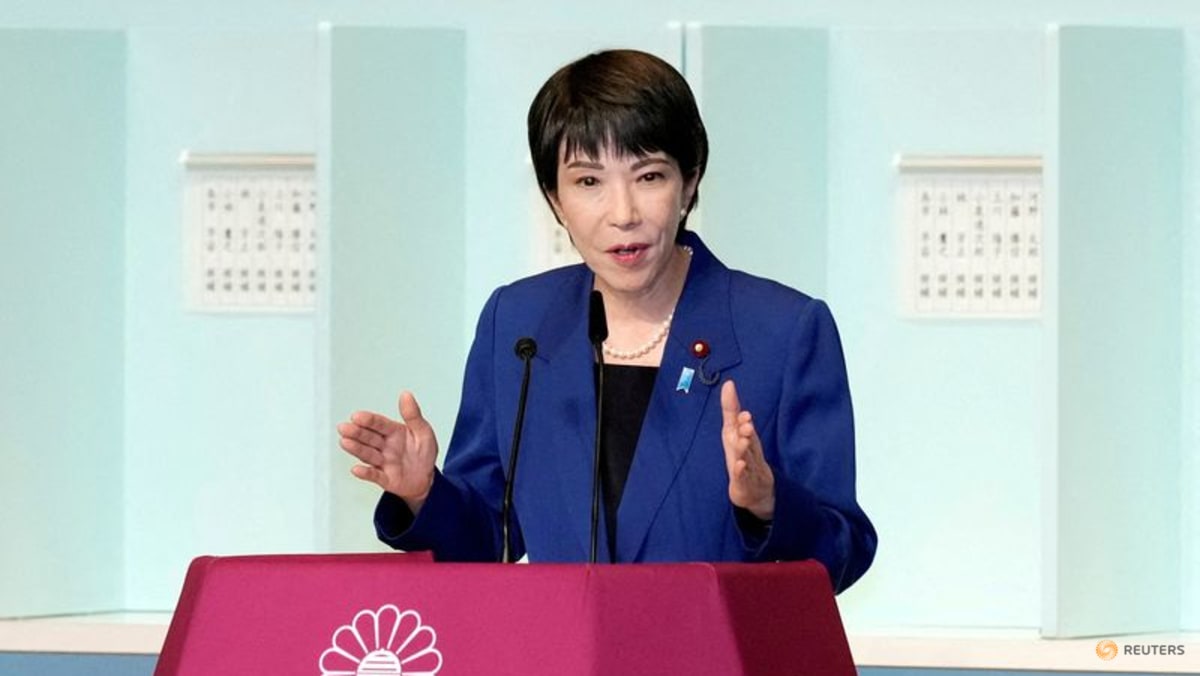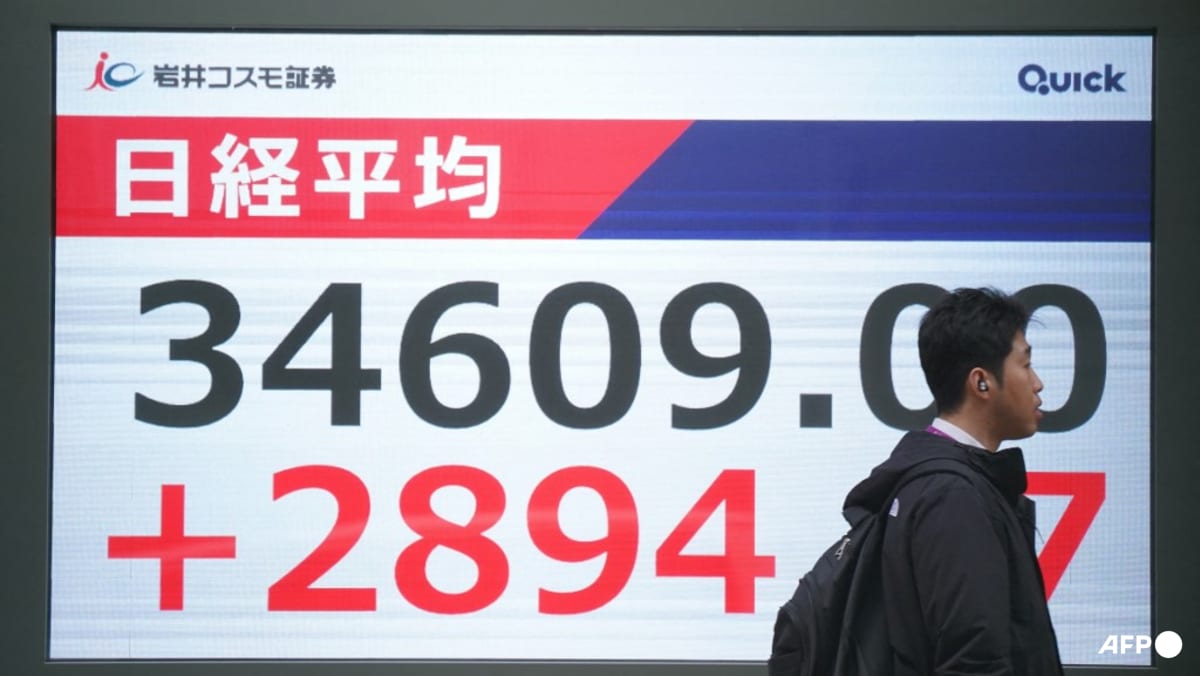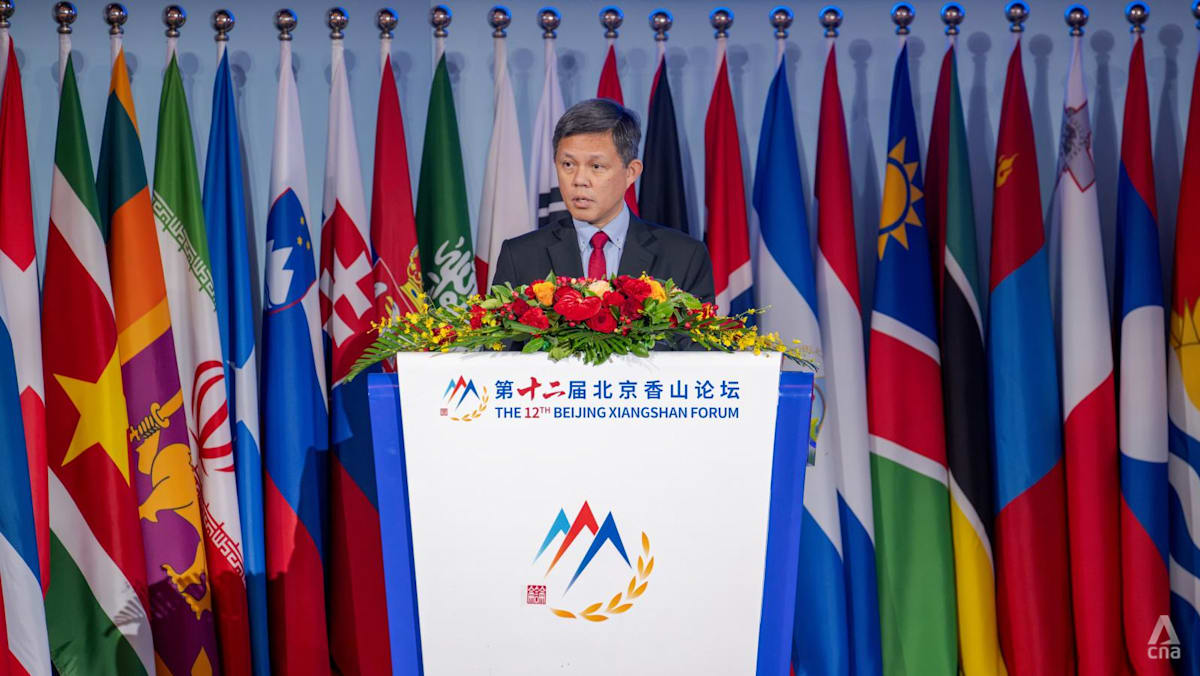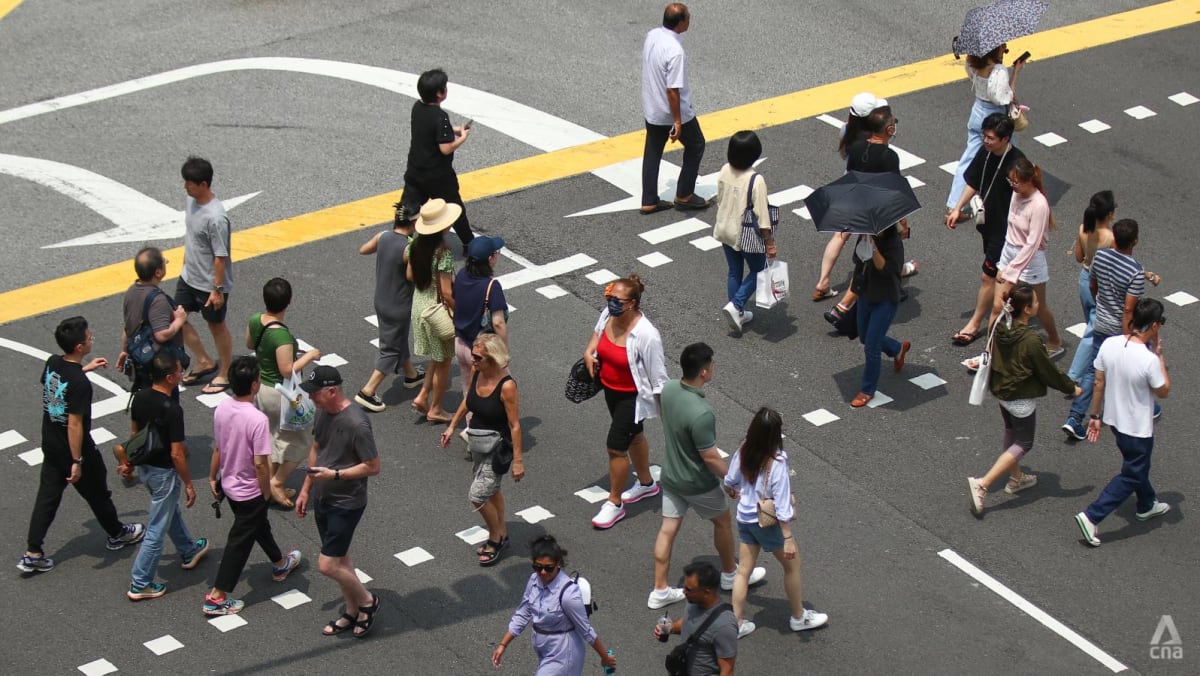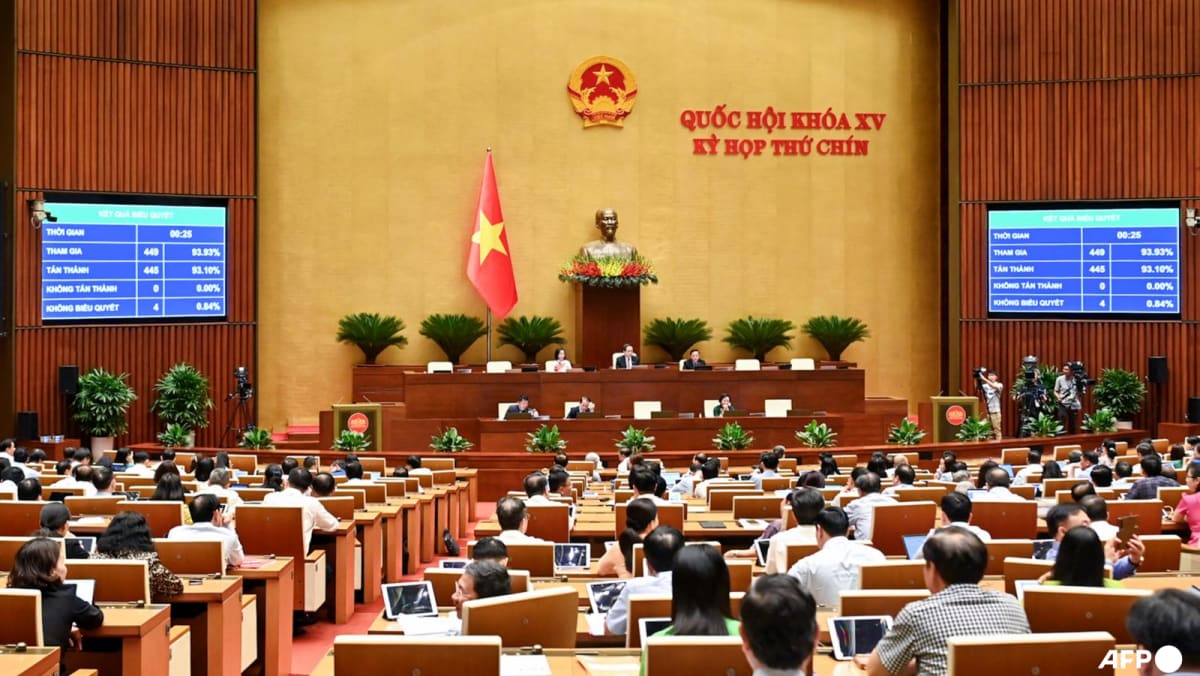SINGAPORE: The Monetary Authority of Singapore (MAS) reported a net profit of S$19.7 billion (US$15.4 billion) in the financial year that ended on Mar 31 due to strong investment gains, it said in its annual report released on Tuesday (Jul 15).
The figure is a sharp increase from the S$3.8 billion net profit posted in the previous financial year.
A combination of a resilient global market as well as declining inflation led to investment gains of S$31.4 billion, which was offset by a negative currency translation effect of S$3.4 billion and net expenses of S$8.3 billion.
The expenses were mainly incurred from MAS’ money market operations to manage banking system liquidity.
"Global markets performed well during the financial year," said MAS managing director Chia Der Jiun. "All asset classes, across bonds and equities, developed and emerging markets posted healthy returns."
The negative currency translation effects of S$3.4 billion were largely because of the strengthening of the Singapore dollar against the US dollar.
This does not have any bearing on investment performance and is booked as a loss because MAS reports its financial statements in Singdollar.
This year's net profit was driven by a few factors, including the good performance of markets due to resilient global growth and declining inflation, said Ms Jacqueline Loh, deputy managing director for corporate development.
"If you look at asset classes, in particular, equities, they've continued to perform better than generally markets would expect."
There was no contribution to the government's consolidated fund for the financial year.
However, Mr Chia said financial markets seem to be pricing in a relatively benign outcome in spite of uncertainties in US trade policy and the larger economy.
He noted that equity markets have recovered from the turbulence in April and rallied to new highs, while credit spreads are tight and Asian currencies have strengthened.
Financial markets were thrown into turmoil in April when US President Donald Trump announced a baseline 10 per cent tariff on all goods entering his country, including those from Singapore, along with steep so-called reciprocal tariffs for many other countries.
As a 90-day pause in the reciprocal tariffs was coming to an end, the US last week started sending out letters informing countries that additional levies would kick in on Aug 1.
"The disjoint between risks to the global economy and benign market pricing means that financial markets are vulnerable to sharp pullbacks and bouts of volatility if risk scenarios crystallise," he said.
Potential triggers include an escalation in trade conflict, geopolitical conflict and heightened concerns by investors over unsustainable policies, he added.
INFLATION TO REMAIN SUBDUED
For the second half of the year and into 2026, MAS sees inflation remaining low and stable, though there are risks to that view.
Chief economist Edward Robinson said imported inflation is subdued and domestic costs are averaging below historical trends.
"Whether or not these continue into next year depends on the ... global macro environment and the determinations of global external factors," he said. "But at this time, I think our very tentative projection is for low and stable inflation to continue into 2026."
MAS said in its report that imported goods inflation should be modest in the near term, as global demand is slowing. Regional inflation is also expected to be subdued because excess output is expected to be diverted to Southeast Asia, including Singapore.
Locally, unit labour cost increases are expected to slow as nominal wage growth eases and labour productivity improves.
"Together with softer consumer spending, as well as enhanced government subsidies, these factors should temper inflation in the quarters ahead," the report said.
However, it added that the uncertainties about the inflation outlook remain high because of increased risks in the global environment.
"We are alert to risks on both sides," said Mr Chia.
"Disinflationary impulses could be stronger if the impact of tariffs on economic activity is more severe, while inflationary pressures could re-surface if geopolitical conflict or supply chain dislocations or disruptions escalate," he said.
Mr Chia also said that MAS applied a more severe scenario when stress testing the domestic financial system's stability this year.
It found that corporates and households are generally resilient. "Nonetheless, there are segments of businesses and households that are more vulnerable and should exercise vigilance," he said.
He highlighted smaller firms in externally oriented sectors that could face risks to revenue and liquidity, and households with less stable incomes.
The latter group should plan their finances prudently and avoid taking on large new loan commitments during this period of uncertainty, he said.
GROWTH IN FINANCIAL SERVICES
Singapore's financial services sector grew 6.8 per cent in 2024, compared with 3.1 per cent in the previous year.
The average growth rate for 2021 to 2024 is 4.7 per cent, on track to meet the target of the Industry Transformation Map. The sector is also on track to meet the target of 3,000 to 4,000 net jobs created per year.
In 2024, growth in the banking sector was resilient, while the insurance industry expanded, with total assets increasing by 3.6 per cent to S$456.4 billion.
MAS added that Singapore continues to grow as a leading foreign exchange hub in Asia and that the corporate debt market posted strong growth.
Assets under management grew 12.2 per cent and exceeded S$6 trillion for the first time, driven by both traditional and alternative sectors.
Wealth management experienced strong growth, and Singapore will be tough on suspicious and illegitimate monies, but welcoming and efficient to legitimate wealth, said Mr Chia.
He added that MAS does not expect the financial sector to continue growing at the pace of the last few years.
"With the global uncertainty, we do expect globally economic activity to come down, and financing activity will also come down," he said.
There are a range of possible outcomes, but the pace has also been "unusually strong", so that cannot be expected to continue, he said.
QUANTUM TECH AND AI
Mr Chia also announced that the MAS's Quantum Key Distribution sandbox, conducted together with some banks and technology partners, has been successfully completed.
The regulator had conducted trials to study the viability of quantum-safe solutions in anticipation of the future threat posed by quantum-powered decryption.
Last year, MAS committed an additional S$100 million to support financial institutions in building capabilities in quantum and artificial intelligence technologies.
"While quantum computing is currently not at a mature stage, the technology is developing rapidly and could eventually render current encryption techniques obsolete, putting at risk sensitive customer data and financial transactions," said Mr Chia.
MAS also announced that it has established PathFin.ai, a programme where financial institutions can share their knowledge and experience in implementing artificial intelligence solutions.
"By curating a library of use-cases, industry-validated solutions and best practices among these FIs, the programme seeks to reduce the time and effort to search, select and effectively implement AI solutions.
A total of 20 financial institutions covering banking, insurance, capital markets and payments have been onboarded to the Pathfinder programme so far.


